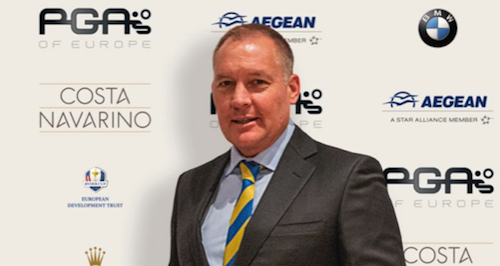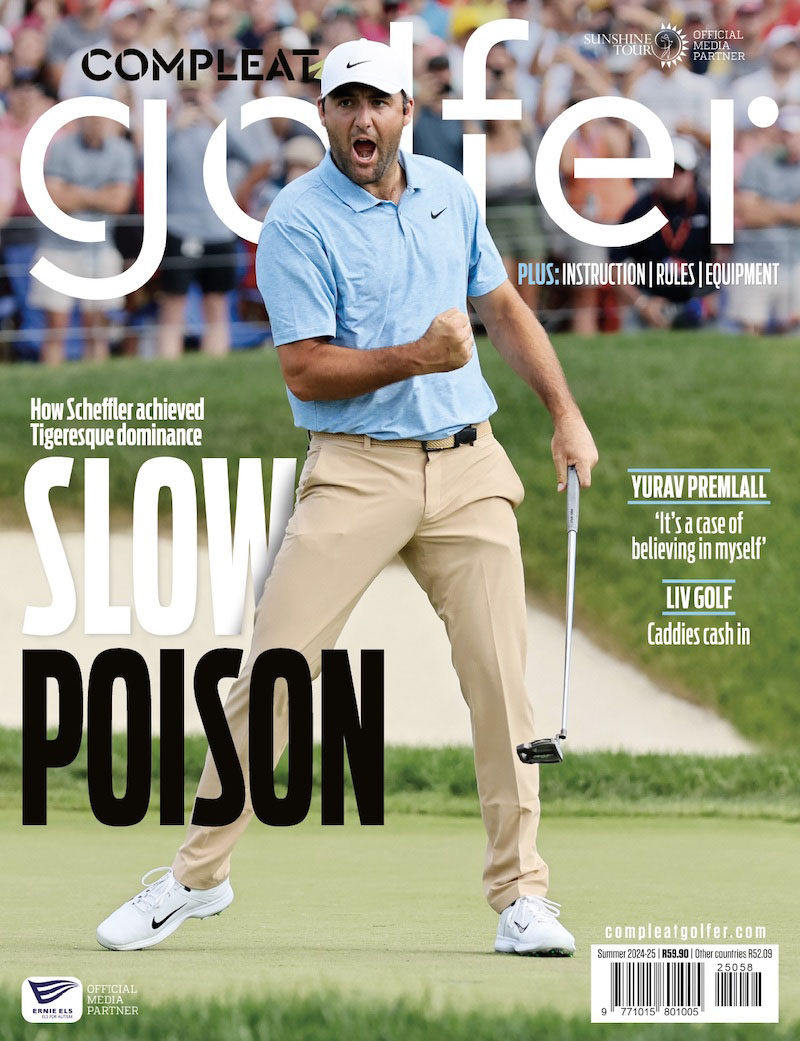Lockdown diaries guest Grant Hepburn, the CEO of GolfRSA, has been hard at work trying to ensure the safe return to golf. He tells WADE PRETORIUS about golf’s approach to government.
Lockdown Diaries: GolfRSA CEO Grant Hepburn
The coronavirus pandemic has forced golf bodies in the country closer together as they join forces to present the best possible case for the reopening of facilities around the country.
Hepburn has been clear in the message that golf as an industry isn’t looking for favouritism over any other sport or industry. And while the game lends itself to social distancing, the return to action is being worked towards with a far bigger picture in mind … the thousands of staff in the industry that live on the breadline.
‘It really is vital that everyone understands we’re in the same queue,’ he tells Compleat Golfer.
‘We were behind other sporting codes that got to meet with government before us, and we’re very grateful to Minister Mthethwa for meeting with us. Can you imagine how busy he is? How busy our government is right now? Forget about how busy you and I are. So I think that we were privileged to have that time. But our whole approach really has been to try and engage with government so that they understand, firstly, the measures we have already put in place as an industry now.
‘We’ve had a very limited amount of golf-course maintenance that was allowed to take place: in layman’s terms, so that the grass wouldn’t die. Because once that happens, to resurrect them, in many cases the cost is prohibitive. So we were allowed to do basic maintenance, not manicuring and trying to make them look beautiful and obviously with that, we had to have a risk-mitigation strategy in place which you know, through our partners like the PGA, CMASA and the club managers and everyone, were in place. And we’ve basically taken steps to make sure that risk mitigation strategy is going to be bigger and better, which it has to be.
‘We’re talking about things like disinfecting daily, employee and golfer testing, and making sure that those test results, they’ll need to go back to central database. The interesting thing is that staff that live on the course, and that happens in many cases, will now start to interact with staff that will come from off the course, so you start to break let’s call it their “bubble”.
‘When you’ve been living inside that bubble and someone else comes into it then there’ a risk so it’s about managing that risk as well so we’ve been taking advice from an organization that’s working closely with government and the Health Department and they are experts. They were the experts dealing with the Ebola crisis when that broke.
‘They have extensive experience in AIDS research. We’ve been engaging with them in terms of how they can help us and they’ve given us a lot of advice which went into the presentation to government because we felt that it’s important that government understands that we’re on the same page in terms of understanding the risk.
‘We know that that box has to be ticked first, and we have to have our ducks in a row in that respect. And the second part of this is, yes, we’d love to get back to playing golf, and we’re doing what we can in that respect. But hand in hand with that goes a very vital aspect, and that is to ensure that we can get people back to do their jobs: vulnerable workers such as caddies, waiters, casual workers that currently are really suffering.
‘Can you imagine the pain that they are going through? People don’t have savings, most people don’t have savings and they are at the most risky end of that.
‘So, as we said to the minister, we would re-purpose, as an easy example a caddie for instance, caddies can’t carry bags obviously, they can’t touch your golf clubs because that adds an element of risk, so to use them to help us with social distancing, or on the tee boxes, to monitor that. Policing is the wrong word, but you understand what I mean by that, and the same as you could have caddies on the fairways. If you needed to rake the bunker, one caddy would be in charge of one rake. That’s their rake, it gets disinfected, no one else touches it. But we wouldn’t even allow the caddies to touch the flags, you wouldn’t be holing out. You’d have the cup slightly raised so that you putted into the raised cup.
‘And so you limit the risk as far as you can, and also we’re looking at – and this was in our presentation – using staff to help us put these things like whatever the logistics are around putting in the testing, helping us to do the testing, and whatever logistics you need around getting that stuff done.
‘So that’s really how we would re-purpose the staff at the golf facilities so we can get them back to work and earning something. And we’ve looked at possibly adding some money onto the green fee to go towards that costs. The reality is that there will be a cost to putting in a proper risk-mitigation strategy, and when you think about the pressure that everyone is already under, economic pressure, it’s quite frightening to understand that those are things it’s going to take, to spend perhaps some more money in order to be able to get to where you need to be.
‘But everyone’s going to have to do it. That’s the reality of the new world we live in, and until some cure or vaccine comes along, that’s what we’re facing.’








